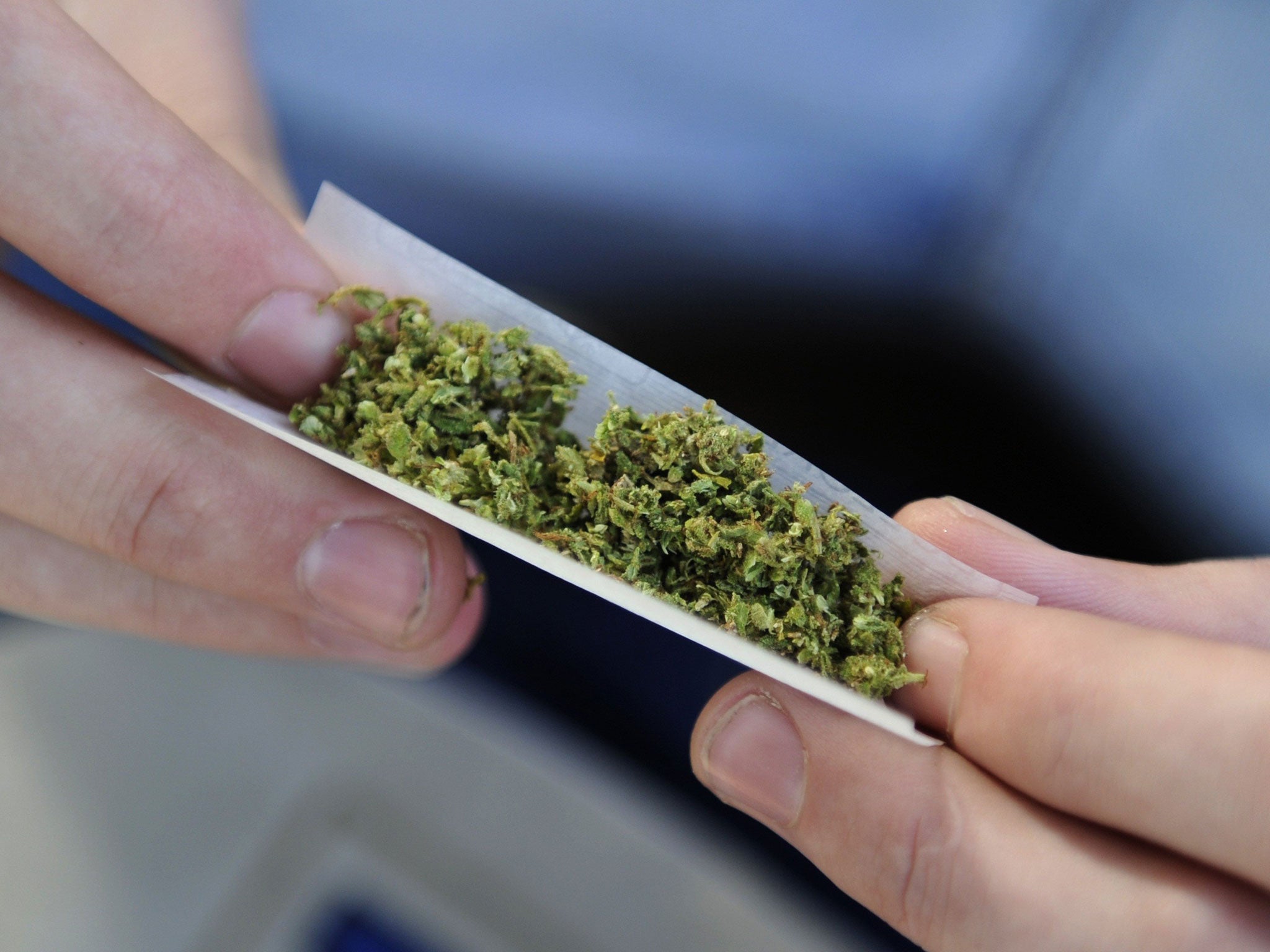Legalising cannabis: £1.25bn tax benefit - without necessarily damaging public health
Research says decriminalising cannabis could cut the cost of policing, prosecuting and treating drug users, while regulation could help control potency and chemical composition

Your support helps us to tell the story
From reproductive rights to climate change to Big Tech, The Independent is on the ground when the story is developing. Whether it's investigating the financials of Elon Musk's pro-Trump PAC or producing our latest documentary, 'The A Word', which shines a light on the American women fighting for reproductive rights, we know how important it is to parse out the facts from the messaging.
At such a critical moment in US history, we need reporters on the ground. Your donation allows us to keep sending journalists to speak to both sides of the story.
The Independent is trusted by Americans across the entire political spectrum. And unlike many other quality news outlets, we choose not to lock Americans out of our reporting and analysis with paywalls. We believe quality journalism should be available to everyone, paid for by those who can afford it.
Your support makes all the difference.Legalising and taxing cannabis could help the Government reduce the deficit by as much as £1.25bn – without necessarily causing significant damage to public health, a study has claimed.
Research by the Institute for Social and Economic Research said decriminalising cannabis could cut the cost of policing, prosecuting and treating drug users by up to £300m a year.
Meanwhile, tax revenue from licensing the drug could raise between £400m and £900m for the exchequer.
Academics at the University of Essex who compiled the report said public debate on cannabis policy had been much too limited in scope and lacked hard evidence in favour of continued criminalisation. It said psychopharmacological research suggested that harm from cannabis use was related to the chemical composition of the drug, so that legalising and regulating its sale could control its potency.
At the same time the report disputed the “greatly exaggerated” assertion put forward by anti-drugs campaigners that cannabis use could lead on to harder drugs.
Rather, it claimed, making cannabis illegal drew users into drug-dealing, with associated economic costs.
“Licensing would remove many people from illicit cannabis supply and thus reduce harm,” they conclude. “We estimate modest external net benefits from reform through the avoidance of scarring effects of criminal records in the labour market of roughly the same magnitude as the external cost to society of the impact on mental health.”
The report suggested there were considerable financial gains to be had for the wider economy from regulating and taxing the sale and production of the drug. “Overall, the contribution of cannabis licensing in England and Wales to reduction of the government deficit is expected to lie in the range £0.5-1.25bn,” they said.
Stephen Pudney, professor of economics at the University of Essex and the lead author of the study, said the report was not a definitive attempt to put a price on the cannabis market, but looked to outline factors to consider, if such a policy were to be introduced.
“Two important areas of uncertainty where progress may be possible are drug-related crime and drug demand behaviour, but it would require greater sustained investments in data and research effort,” he said.
Amanda Feilding, director of the Beckley Foundation, which campaigns for scientifically based reform of drugs policy and which commissioned the report, said: “In these times of economic crisis, it is essential to examine the possibilities of more cost-effective drug policy.
“Our present policies based on prohibition have proved to be a failure at every level. Users are not protected, it puts one of the biggest industries in the world in the hands of criminal cartels, it criminalises millions of users, casting a shadow over their future, and it creates violence and instability, particularly in producer and transit countries.”
Join our commenting forum
Join thought-provoking conversations, follow other Independent readers and see their replies
Comments